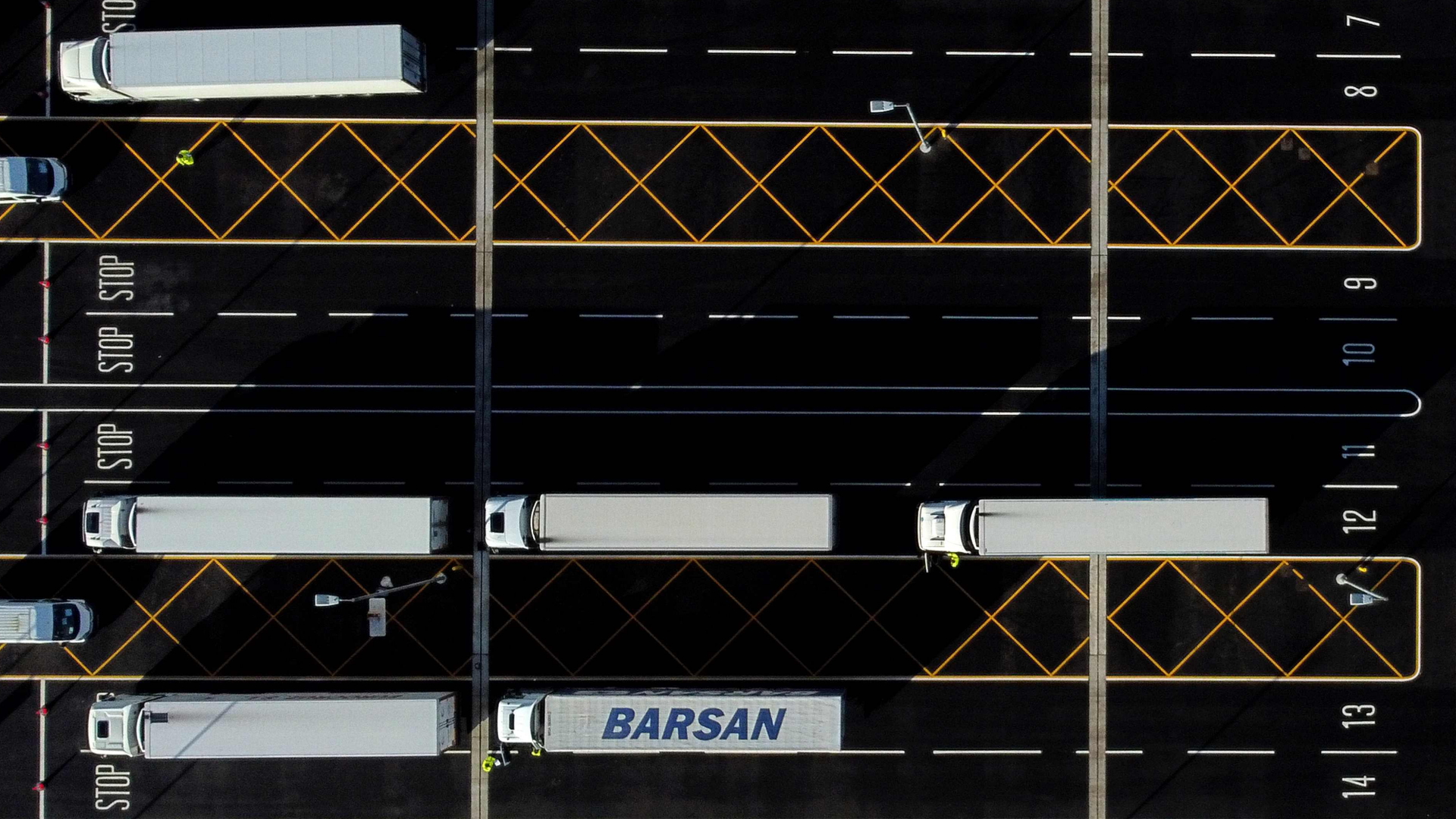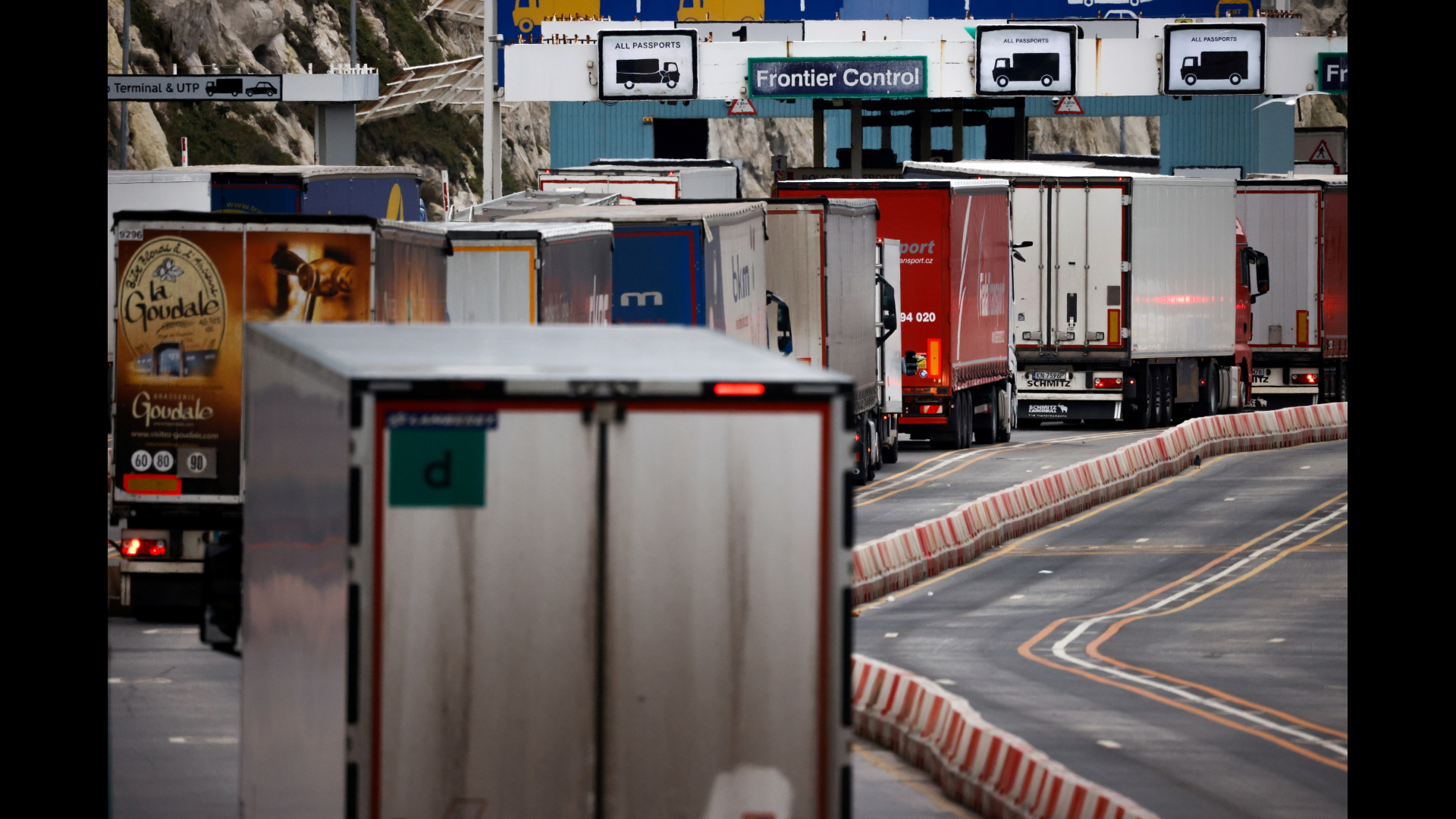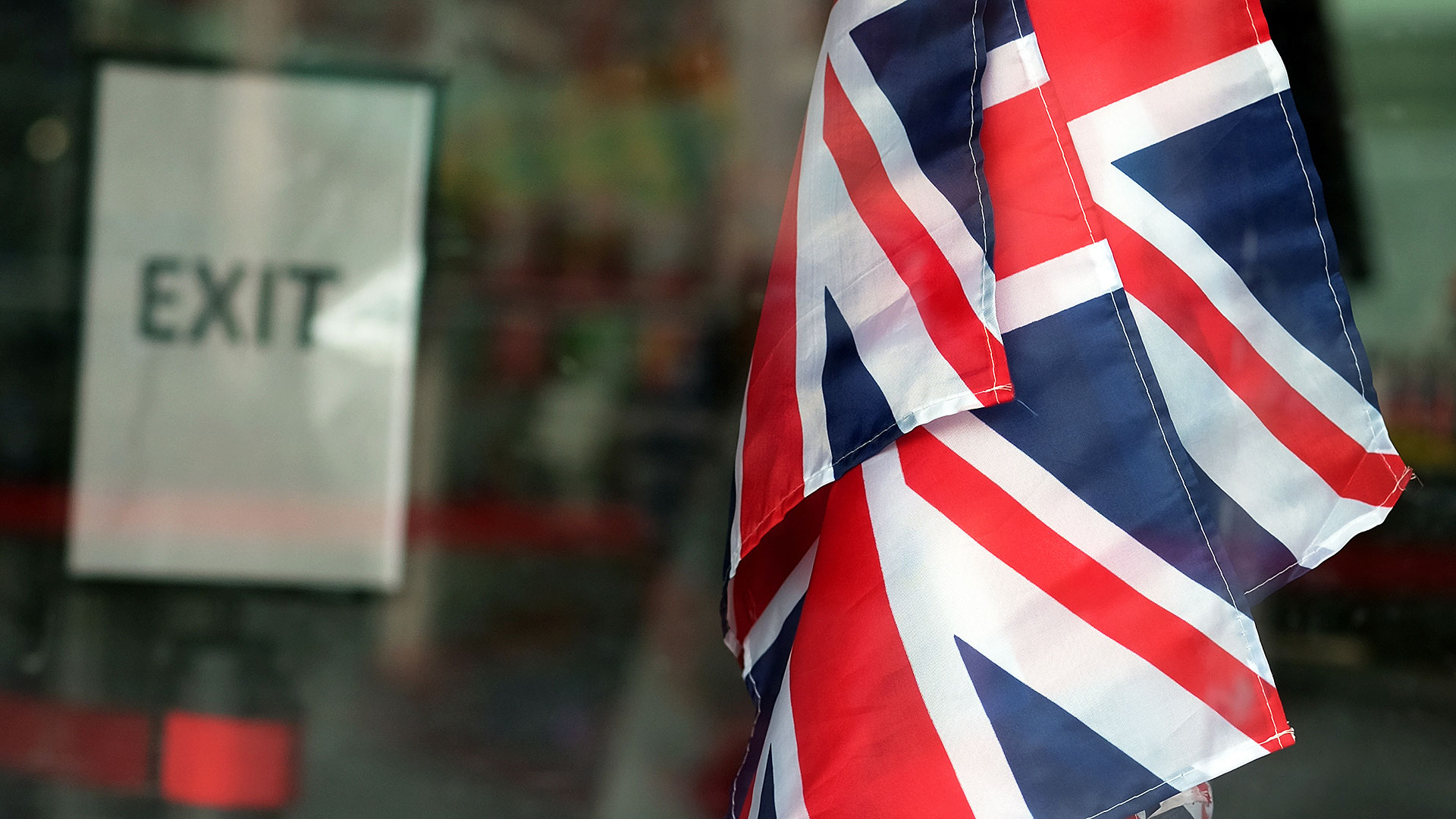
German companies and Brexit “A big disappointment”
Status: 16.06.2021 5:08 p.m.
New customs controls, more bureaucracy, additional costs: Brexit is causing many German companies to consider whether they can still maintain locations in Great Britain. By Aylin Dülger, tagesschau.de Little of what Heller makes stays in England. The company from Nürtingen near Stuttgart operates worldwide. The mechanical engineering company exports components that are installed in machines for milling engine and metal parts at the UK site of Redditch in the county of Worcestershire. From there they reach end customers in many different industries. Both export and import are part of day-to-day business. Brexit will put this business to the test. “For a long time we clung to the illusion that in the end a solution based on partnership would emerge,” says Heller boss Klaus Winkler. Instead, the Brexit agreements created a very bureaucratic construct.
Consequences of Brexit Truck drivers avoid Great Britain The consequences of Brexit are becoming increasingly visible.
The truck takes eight days instead of three
Like many of the small and medium-sized companies that form the backbone of the export-oriented German economy, Heller is now struggling with additional customs controls and bureaucracy. “We have a completely different form war,” says Winkler. “A truck that we send from Nürtingen to England now takes between eight and ten days. We used to do it in three days.”
 Klaus Winkler, Head of the Heller Group: “Long indulged in an illusion” The Chamber of Commerce and Industry also moved in April British Chamber of Commerce in Germany a first sobering Brexit balance sheet . Two thirds of the companies surveyed assessed the effects of the new foreign trade rules with Great Britain more negatively than expected at the beginning of the year. More than three quarters of all respondents reported difficulties in moving goods. And almost every fifth company has therefore decided to completely stop foreign trade with the island.
Klaus Winkler, Head of the Heller Group: “Long indulged in an illusion” The Chamber of Commerce and Industry also moved in April British Chamber of Commerce in Germany a first sobering Brexit balance sheet . Two thirds of the companies surveyed assessed the effects of the new foreign trade rules with Great Britain more negatively than expected at the beginning of the year. More than three quarters of all respondents reported difficulties in moving goods. And almost every fifth company has therefore decided to completely stop foreign trade with the island.
Because of Corona and Brexit British economy is shrinking The lockdown and final Brexit hit the UK economy hard at the start of the year.
Fear of withdrawal
For Heller, completely forgoing foreign trade with Great Britain is a horror scenario that the company is trying to avert. Business has been slowed down enormously, said Winkler. “We had to convey to our colleagues in Great Britain in a credible manner that we do not intend to question the location in Redditch, but rather to preserve it if it can somehow be done.” In order not to jeopardize its competitiveness, the special machine manufacturer will have to constantly reassess the situation in the near future. Because if the products become too expensive, customers threaten to turn to competitors – the location could no longer be held.
Brexit and the economy Many companies stop foreign trade The Brexit agreement aims to ensure that trade between the EU and Great Britain has a future.
Smaller companies more affected
Smaller companies in particular suffered from the additional administrative effort, according to Ulrich Hoppe, head of the German-British Chamber of Commerce and Industry (AHK) in London. That makes it no longer economically viable for many to serve the British market. “The medium-sized and large companies that are active in the United Kingdom are of course also struggling with the additional effort, but they can cushion it much better,” explains Hoppe. Despite the additional costs, the British market will remain very important due to its strategic importance. In 2020, Germany exported goods worth 66.85 billion euros to Great Britain. That was around 5.5 percent of total exports. This made the United Kingdom the fifth most important export market for the Federal Republic of Germany. So that German companies do not leave the island in the future, Heller boss Winkler would like to make goods traffic easier . He is hoping for less bureaucracy on the part of the English authorities, so that the additional effort can be reduced to a more bearable level. For the time being, however, disillusionment dominates. Even if Heller wants to stick to its British location: “Overall, Brexit is a big disappointment for us.”

























































 05/31/2021
05/31/2021 05/12/2021
05/12/2021 04/28/2021
04/28/2021



You must log in to post a comment.